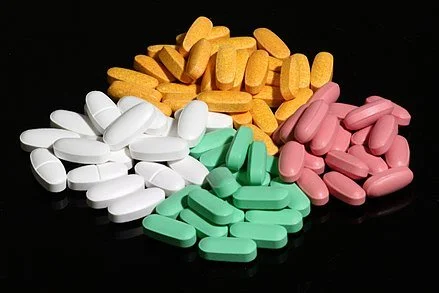
Sarah Barney: Are U.S. drug companies staying in Russia so greedy they’re complicit with Putin’s mass murder?
Maternity hospital in Mariupol, Ukraine, destroyed by Russian invaders on March 9.
U.S. drug companies that keep doing business in Russia are “being misguided at best, cynical in the medium case, and outright deplorably misleading and deceptive.’’
— Jeffrey Sonnenfeld, a professor at the Yale School of Management
Even as the war in Ukraine has prompted an exodus of international companies — from fast-food chains and oil producers to luxury retailers — from Russia, U.S. and global drug companies said they would continue manufacturing and selling their products there.
Airlines, automakers, banks, and technology giants — at least 320 companies by one count — are among the businesses curtailing operations or making high-profile exits from Russia as its invasion of Ukraine intensifies. McDonald’s, Starbucks and Coca-Cola announced a pause in sales this week.
But drugmakers, medical device manufacturers, and health care companies, which are exempted from U.S. and European sanctions, said Russians need access to medicines and medical equipment and contend that international humanitarian law requires they keep supply chains open.
“As a health care company, we have an important purpose, which is why at this time we continue to serve people in all countries in which we operate who depend on us for essential products, some life-sustaining,” said Scott Stoffel, divisional vice president for Illinois-based Abbott Laboratories, which manufactures and sells medicines in Russia for oncology, women’s health, pancreatic insufficiency, and liver health.
Johnson & Johnson — which has corporate offices in Moscow, Novosibirsk, St. Petersburg, and Yekaterinburg — said in a statement, “We remain committed to providing essential health products to those in need in Ukraine, Russia, and the region, in compliance with current sanctions and while adapting to the rapidly changing situation on the ground.”
The reluctance of drugmakers to pause operations in Russia is being met with a growing chorus of criticism.
Pharmaceutical companies that say they must continue to manufacture drugs in Russia for humanitarian reasons are “being misguided at best, cynical in the medium case, and outright deplorably misleading and deceptive,” said Jeffrey Sonnenfeld, a professor at the Yale School of Management who is tracking which companies have curtailed operations in Russia. He noted that banks and technology companies also provide essential services.
“Russians are put in a tragic position of unearned suffering. If we continue to make life palatable for them, then we are continuing to support the regime,” Sonnenfeld said. “These drug companies will be seen as complicit with the most vicious operation on the planet. Instead of protecting life, they are going to be seen as destroying life. The goal here is to show that Putin is not in control of all sectors of the economy.”
U.S. pharmaceutical and medical companies have operated in Russia for decades, and many ramped up operations after Russia invaded and annexed Crimea in 2014, navigating the fraught relationship between the U.S. and Russia amid sanctions. In 2010, Vladimir Putin, then Russian prime minister, announced an ambitious national plan for the Russian pharmaceutical industry that would be a pillar in his efforts to reestablish his country as an influential superpower and wean the country off Western pharmaceutical imports. Under the plan, called “Pharma-2020” and “Pharma-2030,” the government required Western pharmaceutical companies eager to sell to Russia’s growing middle class to locate production inside the country.
Pfizer, Johnson & Johnson, Novartis, and Abbott are among the drugmakers that manufacture pharmaceutical drugs at facilities in St. Petersburg and elsewhere in the country and typically sell those drugs as branded generics or under Russian brands.
Pfizer’s CEO, Albert Bourla, said on CBS that the giant drugmaker is not going to make further investments in Russia, but that it will not cut ties with Russia, as multinational companies in other industries are doing.
Pharmaceutical manufacturing plants in Kaluga, a major manufacturing center for Volkswagen and Volvo southwest of Moscow, have been funded through a partnership between Rusnano, a state-owned venture that promotes the development of high-tech enterprises, and U.S. venture capital firms.
Russia also has sought to position itself as an attractive research market, offering an inexpensive and lax regulatory environment for clinical drug trials. Last year, Pfizer conducted in Russia clinical trials of Paxlovid, its experimental antiviral pill to treat covid-19. Before the invasion began in late February, 3,072 trials were underway in Russia and 503 were underway in Ukraine, according to BioWorld, a reporting hub focused on drug development that features data from Cortellis.
AstraZeneca is the top sponsor of clinical trials in Russia, with 49 trials, followed by a subsidiary of Merck, with 48 trials.
So far, drugmakers’ response to the Ukraine invasion has largely centered on public pledges to donate essential medicines and vaccines to Ukrainian patients and refugees. They’ve also made general comments about the need to keep open the supply of medicines flowing within Russia.
Abbott has pledged $2 million to support humanitarian efforts in Ukraine, and Pfizer, based in New York, said it has supplied $1 million in humanitarian grants. Swiss drug maker Novartis said it was expanding humanitarian efforts in Ukraine and working to “ensure the continued supply of our medicines in Ukraine.”
But no major pharmaceutical or medical device maker has announced plans to shutter manufacturing plants or halt sales inside Russia.
In an open letter, hundreds of leaders of mainly smaller biotechnology companies have called on industry members to cease business activities in Russia, including “investment in Russian companies and new investment within the borders of Russia,” and to halt trade and collaboration with Russian companies, except for supplying food and medicines. How many of the signatories have business operations in Russia was unclear.
Ulrich Neumann, director for market access at Janssen, a Johnson & Johnson company, was among those who signed the letter, but whether he was speaking for the company was unclear. In its own statement posted on social media, the company said it’s “committed to providing access to our essential medical products in the countries where we operate, in compliance with current international sanctions.”
GlaxoSmithKline, headquartered in the United Kingdom, said in a statement that it’s stopping all advertising in Russia and will not enter into contracts that “directly support the Russian administration or military.” But the company said that as a “supplier of needed medicines, vaccines and everyday health products, we have a responsibility to do all we can to make them available. For this reason, we will continue to supply our products to the people of Russia, while we can.”
Nell Minow, vice chair of ValueEdge Advisors, an investment consulting firm, noted that drug companies have been treated differently than other industries during previous global conflicts. For example, some corporate ethicists advised against pharmaceutical companies’ total divestment from South Africa’s apartheid regime to ensure essential medicines flowed to the country.
“There is a difference between a hamburger and a pill,” Minow said. Companies should strongly condemn Russia’s actions, she said, but unless the U.S. enters directly into a war with Russia, companies that make essential medicines and health care products should continue to operate. Before U.S. involvement in World War II, she added, there were “some American companies that did business with Germany until the last minute.”
Sarah Varney is a Kaiser Health News reporter; KHN senior correspondent Arthur Allen contributed to this article.
Will these deals raise economic 'animal spirits'
“The Proposition,’’ by William-Adolphe Bougureau (1825-1905).
From Robert Whitcomb's Dec. 22 "Digital Diary'' column in GoLocal24.com.
I admire the very hard and patient labor of Rhode Island Gov. Gina Raimondo and her colleagues (presumably working with Providence Mayor Jorge Elorza’s administration) to bring some highly respected companies and quite a few jobs to Rhode Island.
The biggest recent employee hauls, all slated for Providence, will be hundreds of jobs (to start) coming to Wexford Science & Technology’s project in the 195 relocation area; 300 at Virgin Pulse (maybe in the Providence Journal Building); 100 at General Electric, and 75 at Johnson & Johnson. The hope is that those well-paid employees will be just the beginning of thousands of well-paying ones arriving over the next couple of years. (City and state official are apparently still working to bring in some Pay Pal operations, too.
We’ll see.
It was gratifying that J&J cited the presence of Brown and RISD as a reason for the project. The state hasn’t gotten nearly enough leverage from its higher-education establishments, or from its proximity to(and lower costs than) the brainiac center of Greater Boston.
A lovely change from the 38 Studios approach.
Of course, the new arrivals will each get millions of dollars in “tax incentives’’ to come to Rhode Island -- incentives that everyone else must pay for. Such incentives are the rule in every state to varying degrees. Two big recent examples – Indiana (pressed by Donald Trump) bribing the Carrier Corp. to not send 800 jobs to Mexico and Massachusetts giving many millions of dollars in goodies to General Electric to move its headquarters to Boston’s waterfront.
Companies that have loyally stayed in their states and paid taxes there without special favors must be irritated. But life is indeed unfair – and probably getting more so. The rich get richer and the poor get…. Get used to it, especially over the next four years.
The idea behind the legal bribery is that not only will these big, rich companies bring in new jobs in themselves but they’ll give many local vendors a lot of work and thus incentives to hire more people. That means not only vendors already in the area but also new ones coming in to serve the big shots. The old “multiplier effect’’.
And just by having such prestigious enterprises in Rhode Island as the ones lured by the Raimondo administration, it is argued, will boost the “animal spirits’’ of local and other business people and investors about Rhode Island. The hope is that such optimism/local pride will then help create, or lead to the import of, more enterprises, in a virtuous circle.
Will this work enough in all too cynical and negative Rhode Island to turn around the state for the long term? Who knows for sure, but I give a lot of credit to Ms. Raimondo and her staff for their labors while being denounced from all sides by those who provide few if any practical alternatives.



